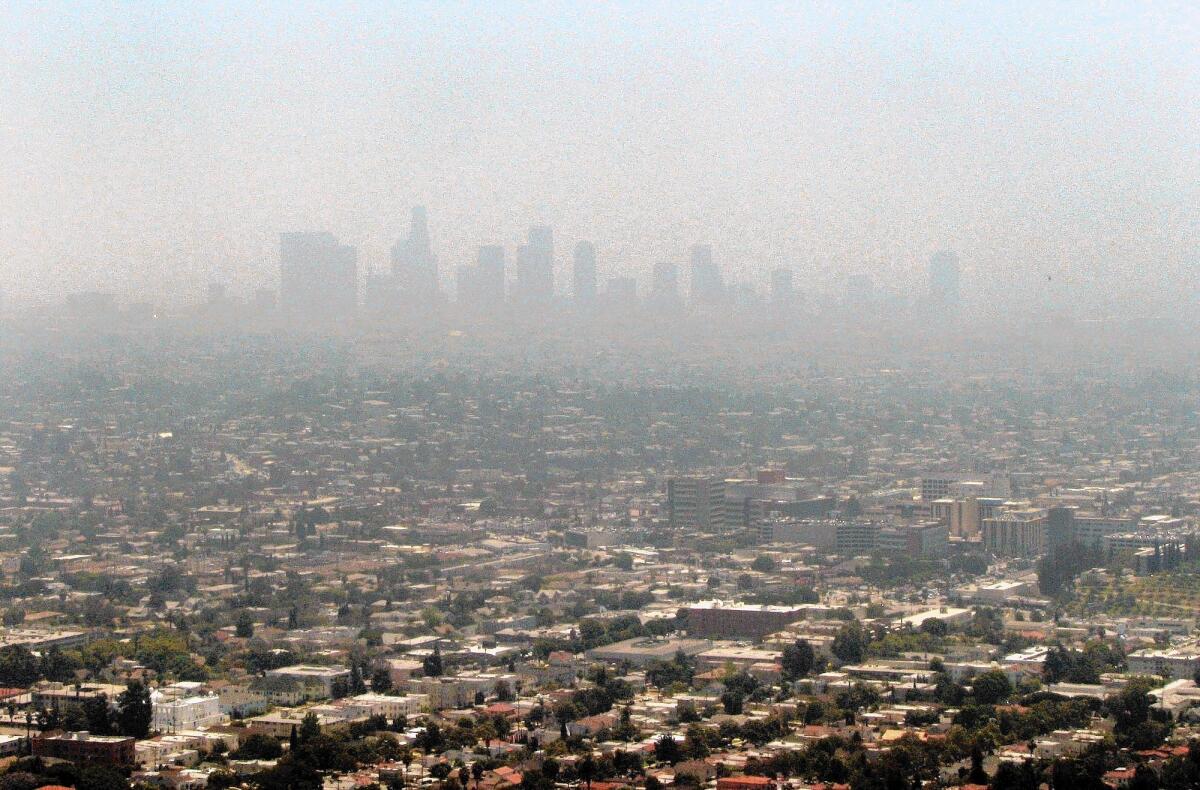Opinion: Five reasons climate change is the worst environmental problem the world has ever faced

- Share via
Even now that most of the world has acknowledged that climate change is real and caused by humans, combating it has proved daunting. Why? There are five features that combine to make global warming a more vexing environmental crisis than any we have faced before.
First, the pollutants that contribute to it are global pollutants, ones that do their damage no matter where on earth they are released. Past pollutants — such as sulfur dioxide, which causes acid rain, or nitrogen oxides, which are a precursor to smog — are local pollutants, which do most of their damage near where they are released. Elected officials are much more likely to enact measures to curtail local pollutants, because the voters who elect them are directly affected by the pollution. With global pollutants, much of the damage is felt far away, and moreover, they may not be something an elected official can control through local action.
The second complicating feature of climate change pollutants is that much of their damage is in the future. The electorate and their public officials have less reason to pass measures that would cost money and cause inconvenience now, when the most severe damage will accrue to some distant and unknowable future.
The third issue is that the pollutants producing climate change can’t be directly linked to a smoking gun. Whereas nitrogen oxide emissions directly created smog, which was easily seen, climate change pollutants lead to more frequent bad events, but these events also can and do occur naturally. We can chart, over time, that hurricanes are getting wetter and more damaging or that drought cycles last longer, but those observations are easily dismissed by those who wish to downplay the problem, since weather has always been variable. Rising average temperatures too can be ignored, because there have always been record-setting days and heat waves.
The fourth feature that makes climate change particularly daunting is that developing countries contribute a large share of the pollution that drives it. This is important for several reasons. It is difficult for developed nations to make the case that the same technologies that made their own growth possible should now be denied to the countries coming behind them. And it is hard for policy makers in developing countries to justify incurring the costs of reducing global pollutants when their citizens still struggle with getting enough to eat or having access to clean water.
The final characteristic making climate change such a thorny problem is that the pollutants causing it are tied directly to crucial aspects of people’s lives, including transportation, home electricity, and heating and air conditioning. Moreover, alternatives still tend to be more costly.
Some past environmental problems offered far easier solutions. The pollution that caused the hole in the ozone layer, for example — chlorofluorocarbons — were also a global pollutant and were tied to widely used products such as refrigeration, air conditioning and hairspray. But there were cheap, readily available alternatives. That’s not the case with the petroleum products we use to power our cars and the natural gas and coal still widely used to generate electricity. Yes, alternatives are being developed, but they are often more costly and haven’t been widely adopted worldwide.
If an evil genius had set out to design the perfect environmental crisis, one that would slowly destroy the earth through humans’ own actions and would be difficult to fight, those five factors would have made climate change a brilliant choice. But we didn’t need an evil genius. We stumbled into it on our own.
Christopher Knittel is a professor of applied economics at the MIT Sloan School of Management and director of MIT’s Center for Energy and Environmental Policy Research.
More to Read
A cure for the common opinion
Get thought-provoking perspectives with our weekly newsletter.
You may occasionally receive promotional content from the Los Angeles Times.










